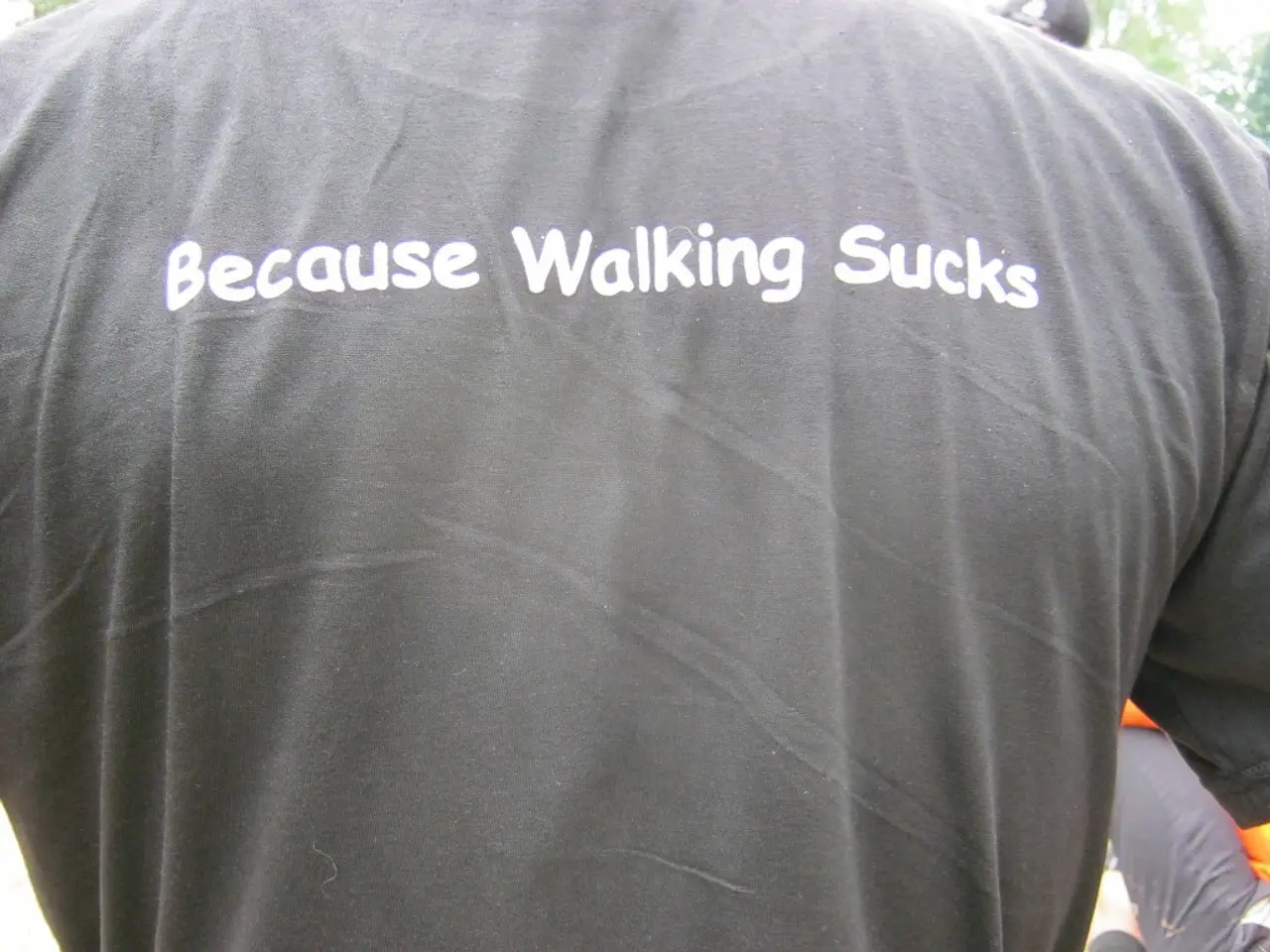"Observing the rise of a fresh societal trend due to stationary living patterns and the accompanying drawbacks"
A significant concern for the French population is their sedentary lifestyle, with physical activity rates remaining stagnant for several decades. According to the National Institute of Youth and Popular Education (INJEP), 95% of French adults are at risk of health deterioration due to insufficient physical activity.
The increase in sports licenses during the 2024 school year was only 5%, indicating a slow progression towards a more active lifestyle. This stagnation is particularly evident among adults with low educational levels and those under 45, who are more affected by sedentary behavior.
However, adults with higher education degrees more often maintain an activity level in line with recommendations. This suggests that education plays a crucial role in promoting physical activity.
Current Physical Activity Recommendations for Adults in France
France generally follows international guidelines for physical activity, specifically those published by the World Health Organization (WHO). These guidelines recommend at least 150–300 minutes per week of moderate-intensity aerobic activity, 75–150 minutes per week of vigorous-intensity aerobic activity, and at least 2 times per week of muscle-strengthening activities.
Practical Interpretation
Moderate-intensity activity includes brisk walking, cycling at a moderate pace, or dancing. Vigorous-intensity activity includes running, fast cycling, swimming laps, or aerobic classes. Muscle-strengthening can be achieved through resistance exercises, bodyweight exercises, or using gym equipment. For older adults (age 65+), the recommendations are the same as for younger adults, with an added emphasis on functional balance and strength training to prevent falls.
Why These Recommendations Matter
Meeting these guidelines can significantly reduce the risks associated with a sedentary lifestyle, including cardiovascular disease, metabolic disorders, and premature mortality. Regular physical activity also supports mental health and cognitive function, with additional evidence highlighting the importance of resistance and mind-body exercises for older adults.
However, despite these recommendations, a large portion of the French population remains inactive, leading to a higher risk of various health issues. The onset of cardiovascular diseases, cancers, type 2 diabetes, obesity, and mental health issues is linked to sedentary lifestyles. Insufficient physical activity is a determining factor in the onset of these conditions, according to INJEP.
The summer of 2024 was marked by the Olympic Games, a global event that emphasizes the importance of physical activity and sports. However, the brutalization of the body affects all citizens, not just factory workers, as stated by ANSES. Sedentary behavior has become a class marker, revealing a divide between those who have the means to preserve their health and others.
In conclusion, while France follows international guidelines for physical activity, the stagnation in physical activity rates among the French population, particularly among certain demographics, remains a significant concern. Promoting physical activity and reducing sedentary behavior should be a priority for public health initiatives in France.
- To combat the issue of sedentary lifestyles and insufficient physical activity among French adults, it's essential to increase awareness about the benefits of science-backed health-and-wellness practices, such as fitness-and-exercise and nutrition.
- Meeting the international physical activity recommendations—at least 150–300 minutes per week of moderate-intensity aerobic activity, 75–150 minutes per week of vigorous-intensity aerobic activity, and at least 2 times per week of muscle-strengthening activities—can help address health risks, including mental-health issues.
- Encouraging physical activity through education could aid in bridging the class divide that sedentary behavior has created, promoting equal health opportunities across all demographics.




